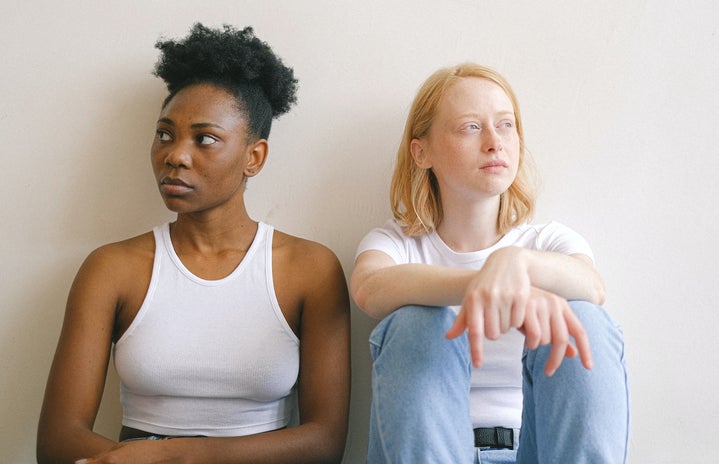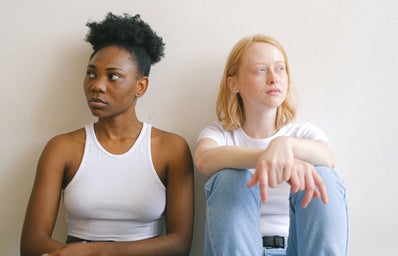If you’re on gay TikTok or alt TikTok (or even questioning, bisexual TikTok), you’ve probably heard of the lesbian masterdoc before. Specifically, you’ve probably seen videos made by people who have clicked “open doc,” identifying as not exclusively attracted to women and closed the doc after reading it questioning if they might, in fact, not be into men at all.
That’s because the lesbian masterdoc happily holds your hand through every question you might have about your attraction. Don’t believe that a google doc could answer your questions? The first concerns in the masterdoc’s index are, “but I like fictional men/celebrities,” “but I think I’ve liked men before,” and “conflicting feelings about men.” Of course, I wouldn’t dream of speaking for everybody, but, personally, those were literally my exact questions in their exact order. In terms of quick accessibility, it’s clear from page one that a lot of effort has been put in to make this resource as user-friendly as possible. If you don’t have time to read about compulsory heterosexuality (comp het) and the way that our heteronormative culture is psychologically inescapable, the “TL;DR” (too long; didn’t read) section towards the bottom of the doc lists 50+ examples of the common, confusing experiences people go through when they’re subconsciously affected by comp het in a convenient, bullet list format.
We should all make time to learn about compulsory heterosexuality, though, because (sadly) we do all contribute to it. Like the masterdoc elaborates, “compulsory heterosexuality is very similar to heteronormativity— the assumption that straight is the default.” While we may not be consciously aware that we’re reinforcing heteronormativity, that doesn’t mean we’re not doing it, and the best way to tackle this is to educate ourselves. If your groups of BFF’s love talking about the guys you’re seeing, there’s nothing wrong with that! But you should reflect critically every once in a while to see if you’ve accidentally created a pattern that places a lot of importance on dating men. Similarly, if you navigate the world assuming everyone is heterosexual until stated otherwise, you might be making it harder for someone else to come to terms with identifying the way they want to.

In addition to being a better ally, being more educated could make you a better friend. Even though I wasted years pursuing unattainable men and running away when I managed to get them, none of my friends knew enough about comp het to meaningfully help me understand the bad pattern. Compulsory heterosexuality causes real damage to the people suffering from its influence, and it’s worth it to be familiar with some of the common behaviors and feelings associated with it. Think of it this way—if you think your friend “do[es] not like the reality of men, only the idea of being with men,” they’d probably really benefit from you supporting them in a way that doesn’t reaffirm the same toxic expectations already stressing them.
You should also read it for yourself because compulsory heterosexuality isn’t exclusive to lesbians. You could identify as a million other sexualities and still realize compt het is shaping your relationships with men, platonic or otherwise. If you’re confident that you’re a straight woman but do routinely lose interest in a man as soon as your feelings are reciprocated, that could be an indicator you fear intimacy. Self-exploration is healthy for everyone, especially if you’ve read this article and realized some of these situations sound like you. I encourage you to read the lesbian masterdoc because it might help your dating life and even your self-image. If you’ve been reenacting heteronormativity, identifying which patriarchal ideas you’ve been unfairly inflicting on yourself can be the key to living your life more happily. While the masterdoc often references women as the subjects of heteronormativity, the far-reaching implications of internalized misogyny affect us all, even cis men.
Like the masterdoc says, sometimes we confuse anxiety for attraction. It’s even documented in psychological studies. Ultimately, there’s no harm in sitting yourself down and double-checking if what you think is attraction is genuine romantic interest.



